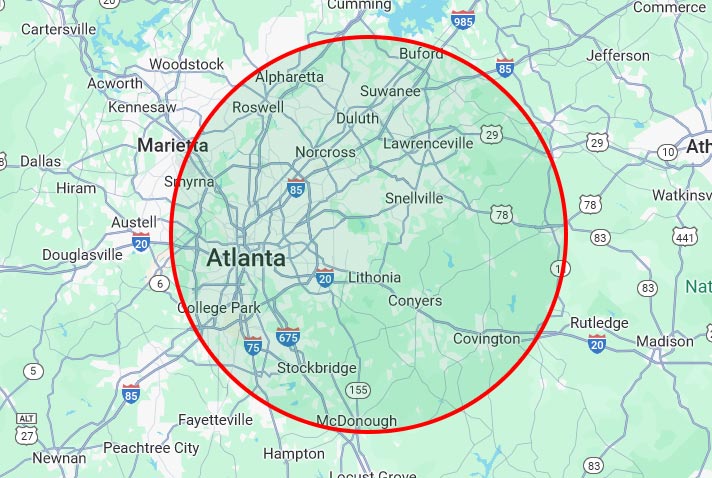Decoding Appliance Error Codes: A Comprehensive Troubleshooting Guide
 When it comes to household appliances, error codes can be both frustrating and confusing. These codes are designed to alert you about potential issues with your appliance, but deciphering them can be a daunting task for many homeowners. In this guide, we will provide you with a comprehensive troubleshooting guide for decoding appliance error codes for the most common home appliances from refrigerators to ovens and washing machines.
When it comes to household appliances, error codes can be both frustrating and confusing. These codes are designed to alert you about potential issues with your appliance, but deciphering them can be a daunting task for many homeowners. In this guide, we will provide you with a comprehensive troubleshooting guide for decoding appliance error codes for the most common home appliances from refrigerators to ovens and washing machines.
Article Summary:
- Understanding Appliance Error Codes
- Common Error Codes Across Different Appliances
- Specific Error Codes and Their Meanings for Major Brands
- DIY Fixes vs. When to Call a Professional
- How to Prevent Common Appliance Problems
- The Process of Professional Appliance Repair
- Cost-Benefit Analysis of Repair vs. Replacement.
- Why Choose Comfort Appliance Repair
1. Understanding Appliance Error Codes
Error codes are a series of numbers or letters that appear on the display screen of your appliance. They are designed to help you identify and troubleshoot any issues with your appliance quickly. Each error code has a specific meaning and can indicate different types of problems, such as faulty parts, electrical issues, or even user errors.
It is essential to understand that error codes are not always accurate and can sometimes be triggered by minor issues. Therefore, it is vital to refer to your appliance manual or contact a professional appliance repair company for a more accurate diagnosis.
2. Common Error Codes Across Different Appliances
While each appliance brand has its specific set of error codes, there are some common ones that appear across different appliances, including:
- E1: Indicates a sensor or temperature-related problem.
- F1, F2, F3: Indicates an issue with the oven’s temperature sensor or control panel.
- LE: Indicates a locked motor error in washing machines and dishwashers.
- NF/ND: Indicates a water flow problem in washing machines and dishwashers.
It is essential to note that these are just some common error codes, and the specific meaning may vary based on the appliance brand and model.
3. Specific Error Codes and Their Meanings for Major Brands
Different brands have their own set of error codes, making it crucial to refer to your appliance manual or contact a professional for an accurate diagnosis. Here are some specific error codes and their meanings for major appliance brands:
- Whirlpool: F1 – E1 indicates a faulty main control board.
- Samsung: SE/5E – Indicates a problem with the microwave’s temperature sensor.
- LG: FE – Indicates an issue with the water level sensor in dishwashers and washing machines.
- GE: FF or 88 – Indicates a communication error between the display board and main control board.
- Frigidaire: F0 – Indicates a problem with the oven’s temperature sensor.
4. DIY Fixes vs. When to Call a Professional
While some error codes can be easily resolved by following the instructions in your appliance manual, others may require help from a professional appliance repair company. It is essential to assess the severity of the issue and your skill level before attempting any DIY fixes. Here are some instances when you should call a professional:
- The error code persists even after following the troubleshooting steps in the manual.
- The issue seems complex and requires specialized tools or knowledge to fix.
- You are not confident in your ability to fix the problem safely.
Remember, attempting DIY fixes without proper knowledge or experience can lead to further damage and potentially harm yourself. It is always better to be safe than sorry and call a professional when in doubt.
5. How to Prevent Common Appliance Problems
While error codes can indicate potential problems with your appliances, some preventive measures can help avoid these issues altogether. These are the most common repairs by appliance and below are critical tips for preventing these common appliance problems:
- Regularly clean and maintain your appliances according to the manufacturer’s instructions.
- Avoid overloading your appliances, as this can cause strain on the components.
- Check and replace any worn or damaged parts.
- Use your appliances properly and follow all safety precautions.
6. The Process of Professional Appliance Repair
When you call for professional appliance repair, they will typically follow these steps:
- Initial assessment: The technician will inspect your appliance and gather information about the issue and any error codes.
- Diagnosis: The technician will use their knowledge and specialized tools to identify the root cause of the problem.
- Repair: Once the issue is identified, the technician will proceed with repairing or replacing any faulty parts.
- Testing: After completing the repairs, the technician will test your appliance to ensure it is functioning correctly.
- Maintenance advice: The technician may provide you with maintenance tips and recommendations to prevent future issues.
7. Cost-Benefit Analysis of Repair vs. Replacement
 When faced with an appliance issue, many homeowners wonder whether it is better to repair or replace their appliance. While the decision ultimately depends on your budget and personal preferences, here are some factors to consider:
When faced with an appliance issue, many homeowners wonder whether it is better to repair or replace their appliance. While the decision ultimately depends on your budget and personal preferences, here are some factors to consider:
- Age of the appliance: If your appliance is older and has a history of frequent issues, it may be more cost-effective to replace it.
- Cost of repairs: If the cost of repairing your appliance is significantly higher than its value or the cost of a new appliance, replacement may be the better option.
- Energy efficiency: Newer appliances are often more energy-efficient, which can save you money in the long run on utility bills.
- Warranty: If your appliance is still under warranty, it may be more practical to have it repaired rather than replaced. It’s helpful to understand your appliance warranty to know what’s covered and what’s not.
8. Why Choose Comfort Appliance Repair
At Comfort Appliance Repair, located in Covington, Georgia, we understand the importance of having functional appliances in your home. Our team of experienced technicians is dedicated to providing efficient and reliable appliance repair services. From diagnosing and fixing error codes to performing routine maintenance, we have you covered. Count on us for all your appliance repair in Atlanta and the surrounding communities. Call RanderCom today!
Frequently Asked Questions (FAQs)
Q: Can I reset an error code on my appliance?
A: In some cases, you may be able to reset the error code by unplugging the appliance for a few minutes and plugging it back in. However, if the issue persists, it is best to consult your manual or a professional for further assistance.
Q: Are all error codes covered under warranty?
A: It depends on the specific terms and conditions of your appliance’s warranty. It is best to refer to your warranty documentation for clarification.
Q: How often should I have my appliances serviced?
A: It is recommended to have routine maintenance performed on your appliances every 6-12 months, depending on usage and manufacturer recommendations. This can help prevent potential issues and prolong the lifespan of your appliances.
By Dennis Godynuk, Owner of Comfort Appliance Repair
Dennis Godynuk is the owner of Comfort Appliance Repair in Covington, GA. Comfort Appliance provides fast and reliable repair services for all major household appliances. Dennis and his team of experienced technicians can tackle any problem, from broken refrigerators to malfunctioning dishwashers, and their prices are very competitive. Customers can rest easy knowing that their appliances are in good hands when they call Comfort Appliance Repair.



